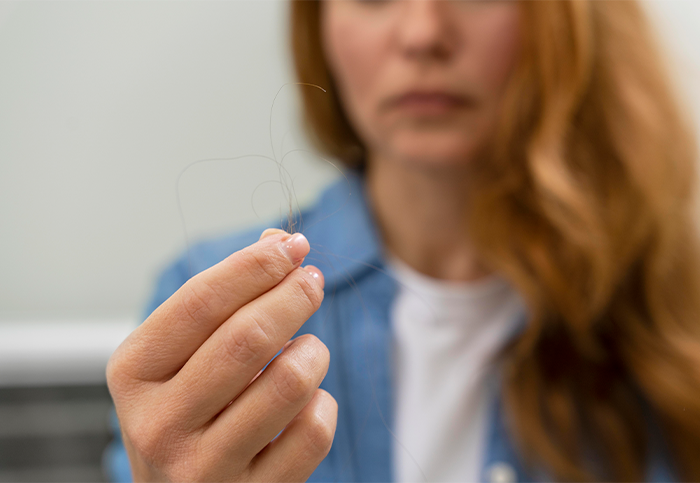5 Lifestyle Modifications to Beat PCOS
Lifestyle is a crucial factor in managing any health condition, including PCOS, but it often requires considerable effort. We’ve all experienced the challenge of building new habits, whether it’s sticking to New Year’s resolutions or trying to form healthier routines. The ultimate question is what motivates a person to make a change, and an even bigger question is what turns small changes into lasting habits.
A phrase from the book, Atomic Habits, resounds so well with everyone who has gone through the grind of self-improvement “Habits are the compound interest of self-improvement."
1. Diet
The saying "Eat your food like medicine so you don’t have to eat your medicine like food" rings particularly true when it comes to managing conditions like Polycystic Ovary Syndrome (PCOS). A well-balanced diet plays a crucial role in addressing many of the challenges associated with PCOS, which can include insulin resistance, hormonal imbalances, and weight management issues.
By adopting healthy eating habits, individuals can significantly improve their overall health and well-being. Monitoring and adjusting dietary habits can yield remarkable results, such as improved energy levels, more stable weight, and a reduction in PCOS symptoms

Here are some of our recommendations that might help:
Nutri-tips:
• Prioritize eating nutrient-dense foods over calorie-dense foods
• Choose whole grain foods like whole grain pasta and bread over refined grains like white bread and rice.
• Go easy on the consumption of unsweetened fruit juices. They are high in ‘free sugars’ because the juicing process releases natural sugars from the cells of the fruit.
• Decrease intake of saturated and trans fats.
• Consume an adequate amount of proteins. If meat is your preferred source of fulfilling protein requirements, then opt for lean proteins like poultry, and fish.
• Include supplements in diet designed to cater the needs of women with PCOS. Nutrifactor’s NUCEPTION has made it easy by combining key nutrients like B Vitamins, Vitamin D3, and Folic Acid with Grape and Chaste Berry Extract.
2. Exercise
“Sitting is the new smoking,” the phrase which originates from the research, underscores the growing concern about the health risks associated with a sedentary lifestyle. Much like smoking, prolonged periods of inactivity can contribute significantly to a range of chronic diseases. For children, the rise in technology usage- such as time spent on smartphones, tablets, and computers- often leads to extended periods of sitting and reduced physical activity. This shift from active play to screen time not only impacts physical health but can also affect mental well-being and social development. Meanwhile, adults face similar challenges, as long working hours and sedentary office environments can lead to prolonged periods of sitting. This lack of movement is compounded by the convenience of modern amenities, such as remote controls and online shopping, which reduce the need for physical effort.
Nutri-tips:
• Incorporate both aerobic and strength exercises into your routine.
• If your job involves long periods of sitting, take breaks every hour to walk or stretch.
• Opt for stairs over elevators.
• Consider parking further away from your destination to increase physical activity.
3. Sleep
An irregular sleep cycle can lead to several detrimental outcomes such as poor concentration, impaired memory, lowered immunity, and more. Additionally, the risk of developing chronic illness increases significantly. What is less known among the general public is that the habit of catching up on sleep during weekends is equally harmful. A study has found that people who are habitual in doing this have increased weight and decreased sensitivity to insulin. Insulin insensitivity can eventually lead to more severe issues like PCOS.

Fixing the sleep cycle may seem like a Herculean task but our suggestions might help:
Nutri-tips:
• Set a consistent bedtime and adhere to it every day.
• Avoid using gadgets and devices at least an hour before sleep.
• Avoid napping during the day.
• Exercise regularly during the day.
• If you struggle with sleep, consider Nutrifactor’s MELATONIN as a natural aid.
4. Stress Management
Stress is an unavoidable part of life. Making, stress management is a crucial life skill that can not only help in addressing PCOS but also make dealing with stressful situations easier. Stress can arise from everyday situations like financial responsibilities, childcare, or uncertainty and fears related to various situations. If not managed well, it can lead to physical symptoms such as sweating, headache, and pain. As well as, emotional symptoms like anger, burnout, forgetfulness, etc.
Nutri-tips:
• Try yoga or meditation.
• Practice gratitude.
• Make time for yourself.
• Start journaling.
• Nutrifactor’s NURILAX is also a good option to consider. It is packed with Ashwagandha, an adaptogen, known to reduce stress.
5. Positive social connections
Humans are hardwired to be social and interactive. Undeniably, social connections and relationships give us a sense of belonging. It is becoming increasingly apparent, through research in industrialized nations, that people with strong communal ties, live happier and longer lives. In contrast, loneliness, labelled as the epidemic of this generation, has been proven by research to have detrimental health effects.
Building meaningful social relationships requires effort and time, just like any other important task in life. Some of our tips might help
Nutri-tips:
• Find avenues for meeting new people such as attending social events and volunteering.
• Stick to your boundaries and respect others’ boundaries.
• Celebrate important milestones.
• Connect with people around, like neighbors, co-workers, etc.
By integrating these lifestyle modifications into your daily routine, you can better manage PCOS and improve your overall quality of life.
References:
https://www.ncbi.nlm.nih.gov/pmc/articles/PMC5579396/
https://magazine.medlineplus.gov/article/irregular-sleep-schedules-can-lead-to-bigger-health-issues
https://www.ncbi.nlm.nih.gov/pmc/articles/PMC3181741/
https://www.ncbi.nlm.nih.gov/pmc/articles/PMC4838429/
https://www.ncbi.nlm.nih.gov/pmc/articles/PMC3150158/



